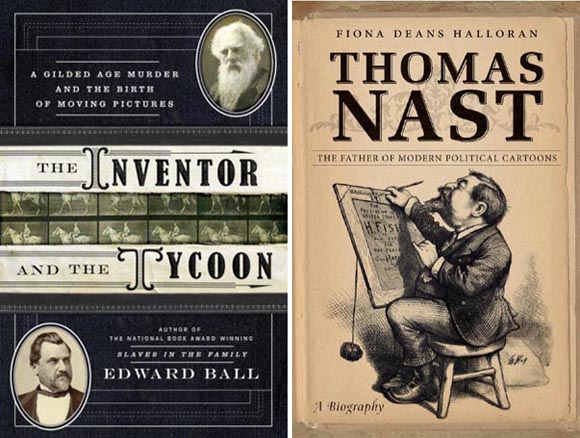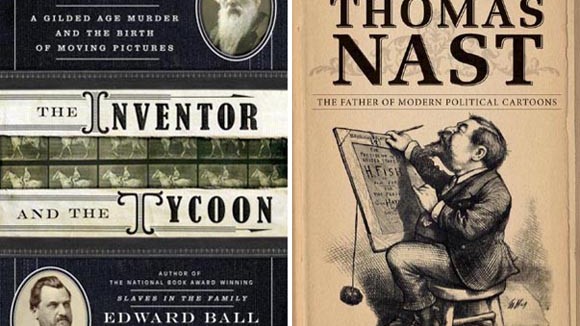

New Biographies of Photographer/Murderer Eadweard Muybridge and Cartoonist Thomas Nast

These two newly published books should be worth a look, especially for those who are interested in the 19th century roots of American cartooning and animation.
Eadweard Muybridge never animated a frame in his life, but his sequential photographs of animal locomotion and human action were vitally important to the development of animation craft. Less known about Muybridge is that he also murdered a man in cold blood. Edward Ball’s new book The Inventor and the Tycoon: A Gilded Age Murder and the Birth of Moving Pictures explores Muybridge’s life, and especially his relationship with California governor Leland Stanford, who was one of the photographer’s early benefactors. This book review in the Boston Globe sheds more light on the book’s contents.
Another new arrival in the biography category tells the story of a seminal figure in American cartooning, Thomas Nast. His work serves as a reminder to artists that cartoons can be a powerful and impactful medium. Nast used funny drawings to attack those in power and his drawings helped lead to the downfall of the famously corrupt New York politician “Boss” Tweed. Nast’s drawings are also responsible for a good deal of America’s cultural iconography from the elephant symbol of the Republican party to the American-ized image of Santa Claus. Fiona Deans Halloran’s Thomas Nast: The Father of Modern Political Cartoons claims to be the most comprehensive biography of Nast to date. Here is a review of the book in the Salt Lake Tribune.
